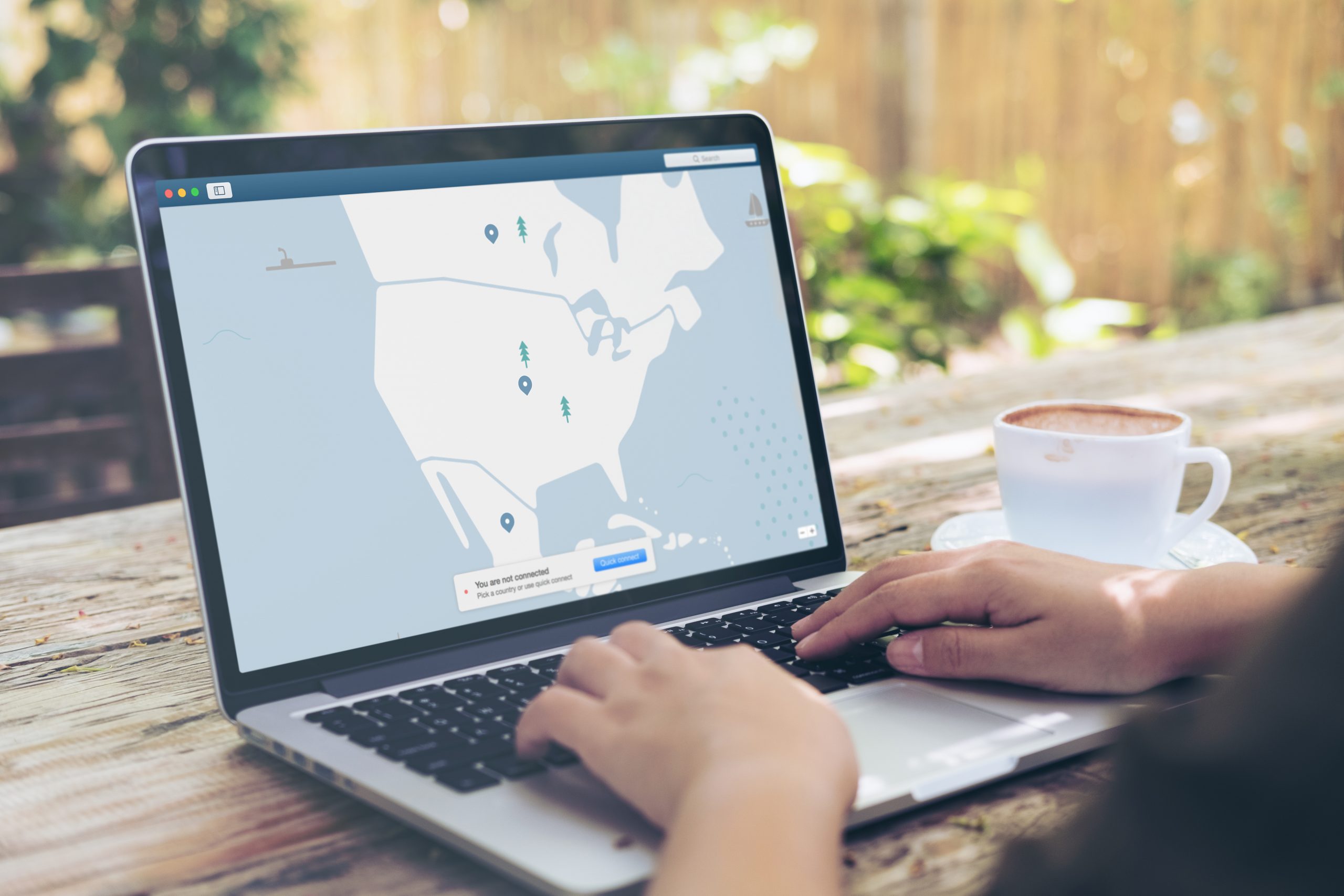In the ever-evolving landscape of social media, the California Consumer Privacy Act (CCPA) has emerged as a key concern for businesses and their engagement with online platforms. The CCPA, implemented with the aim of protecting consumer data and privacy, has far-reaching implications for companies operating in the digital realm. As businesses increasingly rely on social media for marketing and customer engagement, understanding the intersection of CCPA and social media becomes paramount. This article aims to shed light on the implications of CCPA on social media practices and provide businesses with the necessary guidance to ensure compliance and safeguard consumer trust. By addressing commonly asked questions surrounding CCPA and social media, this article serves as a valuable resource for businesses navigating this complex legal landscape.

Overview of CCPA and its Impact on Social Media
What is CCPA?
The California Consumer Privacy Act (CCPA) is a state-level privacy law that was enacted in January 2020 and became enforceable on July 1, 2020. It is designed to enhance consumer privacy rights and provide individuals with more control over their personal information. The CCPA applies to businesses that collect and process the personal information of California residents, regardless of where the business is located.
Key Provisions of CCPA
The CCPA introduces several important provisions that businesses need to comply with in order to ensure the privacy rights of California residents. These provisions include:
-
Right to Know: Consumers have the right to know what personal information businesses collect, sell, or disclose about them, as well as the purpose for collecting such information.
-
Right to Access: Consumers have the right to request access to their personal information that is held by a business.
-
Right to Opt-out: Consumers have the right to opt-out of the sale of their personal information. Businesses must provide a clear and conspicuous link on their website homepage titled “Do Not Sell My Personal Information” to enable consumers to exercise this right.
-
Right to Deletion: Consumers have the right to request the deletion of their personal information that is held by a business.
Why is CCPA important for businesses?
CCPA compliance is crucial for businesses, especially those operating in or targeting California. Failure to comply with the CCPA can lead to significant financial penalties and reputational damage. Additionally, complying with the CCPA demonstrates a commitment to respecting consumer privacy rights, which can enhance public trust and improve customer relations.
Understanding Social Media and its Role in CCPA Compliance
Social media platforms play a significant role in CCPA compliance, as they collect, use, and disclose a vast amount of personal information. Understanding how social media platforms handle user data and ensuring compliance with CCPA requirements are essential for businesses utilizing these platforms for marketing and customer engagement.
CCPA Compliance for Social Media Platforms
Responsibilities of Social Media Platforms under CCPA
Social media platforms, as covered businesses under the CCPA, have certain responsibilities to ensure compliance. They must provide clear and easily accessible privacy policies that inform users about the types of personal information collected, the purpose for collecting it, and how it is shared with third parties. Social media platforms are also required to provide mechanisms for users to exercise their CCPA rights, such as accessing their personal information and opting out of the sale of their data.
Data Collection, Use, and Disclosure on Social Media
Social media platforms collect various types of personal information, including names, email addresses, location data, and browsing behavior. This data is used for targeted advertising, content personalization, and improving user experience. CCPA requires social media platforms to provide notice to users about the collection and use of their personal information and obtain their consent for certain data processing activities.
How Social Media Platforms Handle User Consent
Obtaining user consent is a crucial aspect of CCPA compliance for social media platforms. They must ensure that users are informed about the specific purposes for which their personal information will be used and obtain explicit consent for data processing activities that require it. Social media platforms should also provide an easy-to-use mechanism for users to withdraw their consent at any time.
The Role of Cookies and Tracking Technologies
Cookies and tracking technologies are extensively used by social media platforms to collect user data and deliver personalized content. Under the CCPA, businesses must disclose the categories of personal information collected through these technologies and provide users with the option to opt-out of their use. It is important for social media platforms to implement mechanisms for obtaining user consent for the use of cookies and tracking technologies in compliance with CCPA requirements.
Implications of CCPA Non-compliance for Social Media Platforms
Non-compliance with the CCPA can have severe consequences for social media platforms. The California Attorney General’s office can seek civil penalties of up to $7,500 per violation, and consumers have the right to bring private actions against businesses for certain data breaches. Moreover, non-compliance can lead to reputational damage, loss of user trust, and potential loss of business partnerships.
Data Subject Rights and Social Media under CCPA
Right to Notice of Data Collection
The CCPA grants consumers the right to be informed about the collection of their personal information by businesses. Social media platforms must provide clear and conspicuous notice to their users about the categories of personal information collected, the sources from which it is collected, and the purposes for which it will be used.
Right to Access Personal Information
Consumers have the right to request access to the personal information that social media platforms hold about them. Upon receiving a verifiable request, the platforms must disclose the specific pieces of personal information collected, the categories of information sold or disclosed, and the categories of third parties to whom the information has been sold or disclosed.
Right to Opt-out of Data Sale
Social media platforms must comply with consumers’ requests to opt-out of the sale of their personal information. They must provide a “Do Not Sell My Personal Information” link on their homepage, which enables users to easily exercise their right to opt-out. Platforms are further required to respect and honor user preferences to ensure compliance with this provision.
Right to Deletion of Personal Information
The CCPA grants consumers the right to request the deletion of their personal information held by social media platforms. Upon receiving a verified request, the platforms must delete the requested information, except in specific circumstances outlined in the CCPA. Social media platforms should establish processes to accurately verify and respond to deletion requests in a timely manner.
Challenges and Limitations with Data Subject Rights on Social Media
While the CCPA provides consumers with robust data subject rights, there are certain challenges and limitations associated with exercising these rights on social media platforms. The sheer volume of data collected by these platforms and the complexity of their data ecosystems can make it challenging for users to fully understand their rights and take meaningful actions. Social media platforms must strive to provide clear and user-friendly mechanisms for users to exercise their rights effectively.
Data Sharing and Third-Party Relationships on Social Media Platforms
CCPA Requirements for Data Sharing on Social Media
Under the CCPA, social media platforms are required to disclose whether they sell personal information to third parties or share it for commercial purposes. If data sharing occurs, the platforms must allow consumers to opt-out of such activities. Third-party data sharing must be transparent, and users must be fully informed about the types of information shared and the purposes for which it is shared.
Understanding Third-Party Relationships on Social Media
Social media platforms often have complex relationships with third parties, such as advertisers, app developers, and data brokers. It is important for businesses to understand these relationships to ensure compliance with the CCPA. Platforms should establish contractual obligations with third parties to ensure they handle personal information in accordance with CCPA requirements and provide mechanisms for users to exercise their rights in relation to third-party data sharing.
Risks and Compliance Concerns with Third-Party Data Sharing
Third-party data sharing on social media platforms can pose risks to consumer privacy and data security. Sharing personal information with untrustworthy or unauthorized third parties can lead to data breaches and compromise sensitive information. Compliance concerns arise when platforms fail to properly monitor and audit their third-party relationships, which can result in unauthorized data sharing or use that violates CCPA requirements.
Best Practices for Ensuring CCPA Compliance in Third-Party Relationships
To ensure compliance with the CCPA in third-party relationships on social media platforms, businesses should implement several best practices. These include conducting due diligence on third-party partners, entering into contracts that include CCPA compliance provisions, regularly monitoring third-party data handling practices, and providing users with clear mechanisms to control their data sharing preferences.
Marketing and Advertising on Social Media under CCPA
CCPA Requirements for Advertising on Social Media
The CCPA imposes certain requirements on marketing and advertising activities conducted on social media platforms. Businesses need to clearly disclose the categories of personal information that will be collected and used for targeted advertising purposes. They must also provide consumers with the option to opt-out of the sale or sharing of their personal information for advertising purposes.
Impacts of CCPA on Targeted Advertising
Targeted advertising on social media relies heavily on user data and personalization techniques. The CCPA introduces changes to how businesses can collect, use, and share personal information for advertising purposes. It requires explicit consent for the sale of personal data and provides consumers with the right to opt-out of such activities. This can impact the effectiveness of targeted advertising campaigns and requires businesses to adapt their strategies to ensure compliance.
Lawful Basis and Consent for Marketing Activities
Under the CCPA, businesses must have a lawful basis for collecting and processing personal information for marketing purposes. Consent is an essential basis for lawful data processing, and businesses must ensure that they obtain valid consent from individuals before engaging in marketing activities. Consent must be specific, informed, and freely given, and individuals have the right to withdraw their consent at any time.
Steps to Ensure CCPA Compliance in Marketing on Social Media
To ensure CCPA compliance in marketing activities on social media, businesses should take several steps. These include reviewing and updating privacy policies and notices to provide clear information about data collection and use for marketing purposes, implementing mechanisms for obtaining and managing user consent, and providing simple and accessible ways for users to opt-out of personal information sale or sharing.
CCPA Compliance Tips for Businesses Using Social Media
Determining Your Business’s Obligations under CCPA
Before engaging in any activities on social media platforms, businesses must determine whether they fall within the scope of the CCPA. This requires assessing whether the business collects and processes personal information of California residents and meets the specified CCPA thresholds. Determining obligations under the CCPA is essential to understand the compliance measures that need to be implemented.
Reviewing and Updating Privacy Policies and Notices
Reviewing and updating privacy policies and notices is crucial for CCPA compliance. Businesses utilizing social media platforms must ensure that their policies and notices accurately reflect their data collection, use, and sharing practices. The policies should clearly inform users about their rights under the CCPA and provide instructions on how to exercise those rights.
Implementing Mechanisms for User Data Rights
To comply with CCPA requirements, businesses need to implement mechanisms that enable users to exercise their data rights. This includes providing easy-to-use tools for accessing personal information, opting out of data sales, and requesting deletion of personal information. Businesses should ensure that these mechanisms are user-friendly, accessible, and transparent.
Training Staff and Raising Awareness about CCPA and Social Media
It is crucial for businesses to train their staff and raise awareness about CCPA and its impact on social media. Staff should be knowledgeable about the CCPA provisions, the rights of consumers, and the processes for handling user requests. Regular training sessions and updates can help ensure that businesses are prepared to comply with CCPA requirements and adequately respond to user inquiries.
Performing Regular Audits and Assessments of Compliance
Regular audits and assessments are essential to maintain CCPA compliance for businesses using social media. These processes help identify any gaps or areas of non-compliance in data handling practices. By conducting regular internal audits and assessments, businesses can proactively address compliance issues, implement necessary changes, and ensure ongoing adherence to CCPA requirements.

CCPA and Social Media: Common FAQs
Does CCPA apply to all social media platforms?
Yes, the CCPA applies to all social media platforms that collect and process the personal information of California residents. The law does not differentiate between different types of online platforms, and its provisions cover a wide range of businesses that engage in data collection and processing activities.
How can social media platforms ensure compliance with CCPA?
Social media platforms can ensure compliance with the CCPA by implementing clear and easily accessible privacy policies, providing mechanisms for users to exercise their CCPA rights, obtaining valid user consent for data processing activities, and establishing safeguards to protect user data. Regular assessments and audits can also help identify and rectify any compliance gaps.
What are the penalties for non-compliance with CCPA on social media?
The California Attorney General’s office can seek civil penalties of up to $7,500 per violation for non-compliance with the CCPA. Additionally, consumers have the right to bring private actions against businesses for certain data breaches, which can result in significant financial liabilities. Non-compliance with the CCPA can also lead to reputational damage and loss of user trust.
Can businesses utilize user data obtained from social media under CCPA?
Yes, businesses can utilize user data obtained from social media platforms under the CCPA, provided they comply with the law’s requirements. This includes informing users about the collection and use of their personal information, obtaining valid consent for data processing activities, and respecting users’ rights to access, opt-out, and deletion.
Does CCPA affect targeted advertising on social media?
Yes, the CCPA has implications for targeted advertising on social media platforms. Businesses must disclose the categories of personal information collected for targeted advertising purposes, provide users with the choice to opt-out of data sales or sharing for advertising purposes, and obtain explicit consent from users for certain data processing activities. These requirements impact how businesses conduct targeted advertising campaigns on social media platforms.
Conclusion
Compliance with the California Consumer Privacy Act (CCPA) is essential for businesses using social media platforms. Understanding the key provisions of the CCPA, the responsibilities of social media platforms, and the implications for data subject rights and marketing activities is crucial for ensuring compliance. By implementing best practices, regularly reviewing policies, and training staff, businesses can navigate the complexities of CCPA compliance and ensure the protection of consumer privacy on social media platforms.













